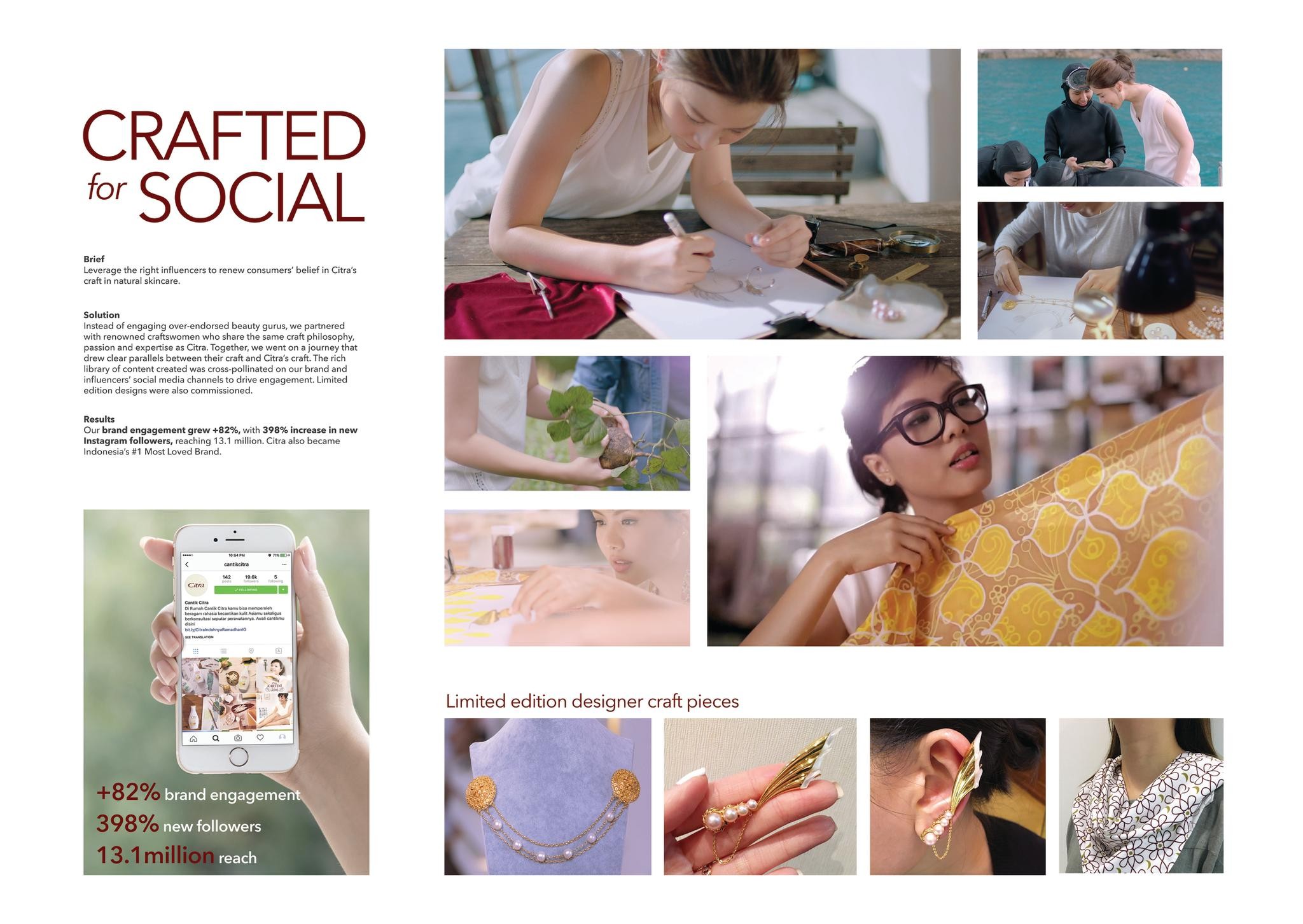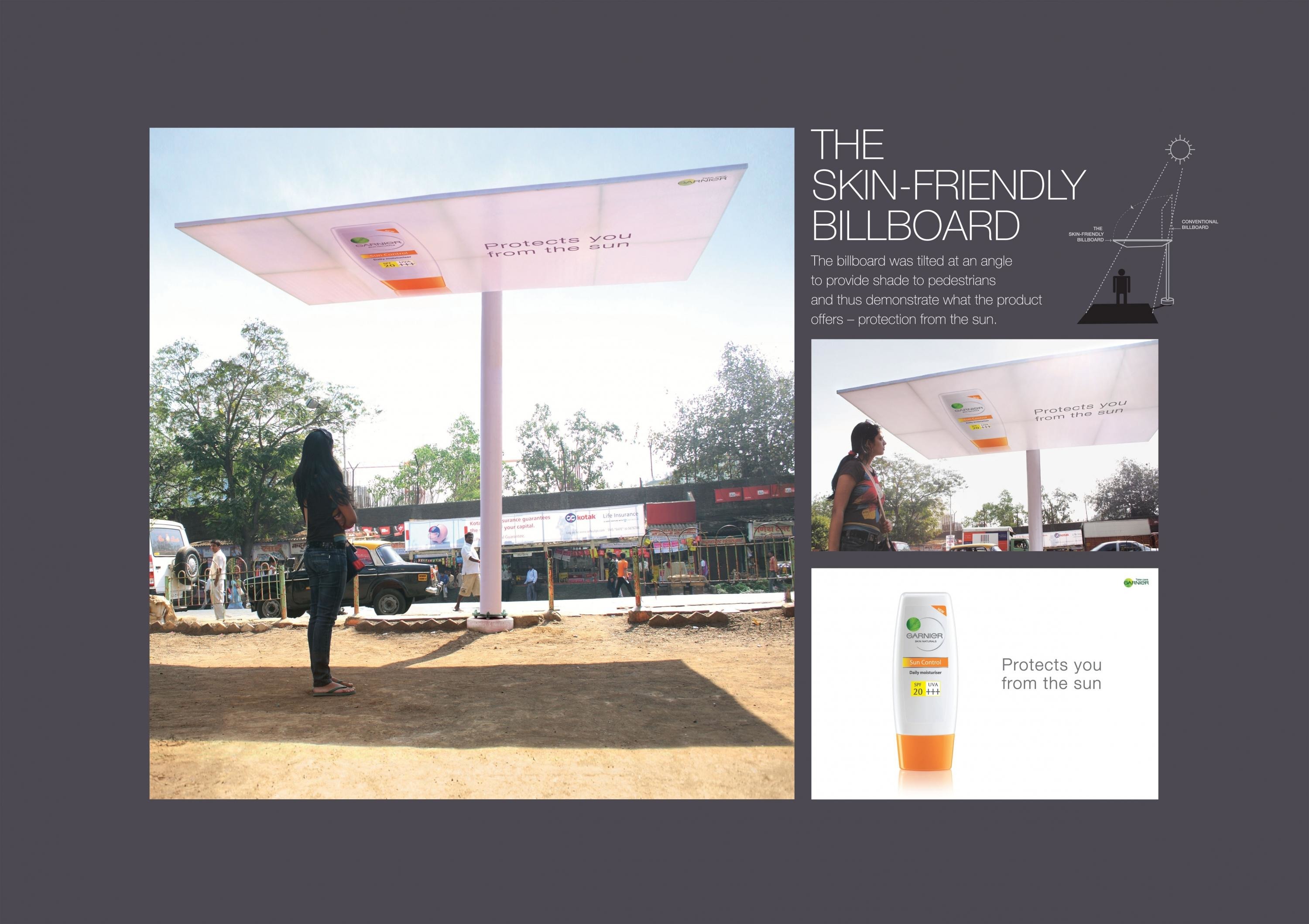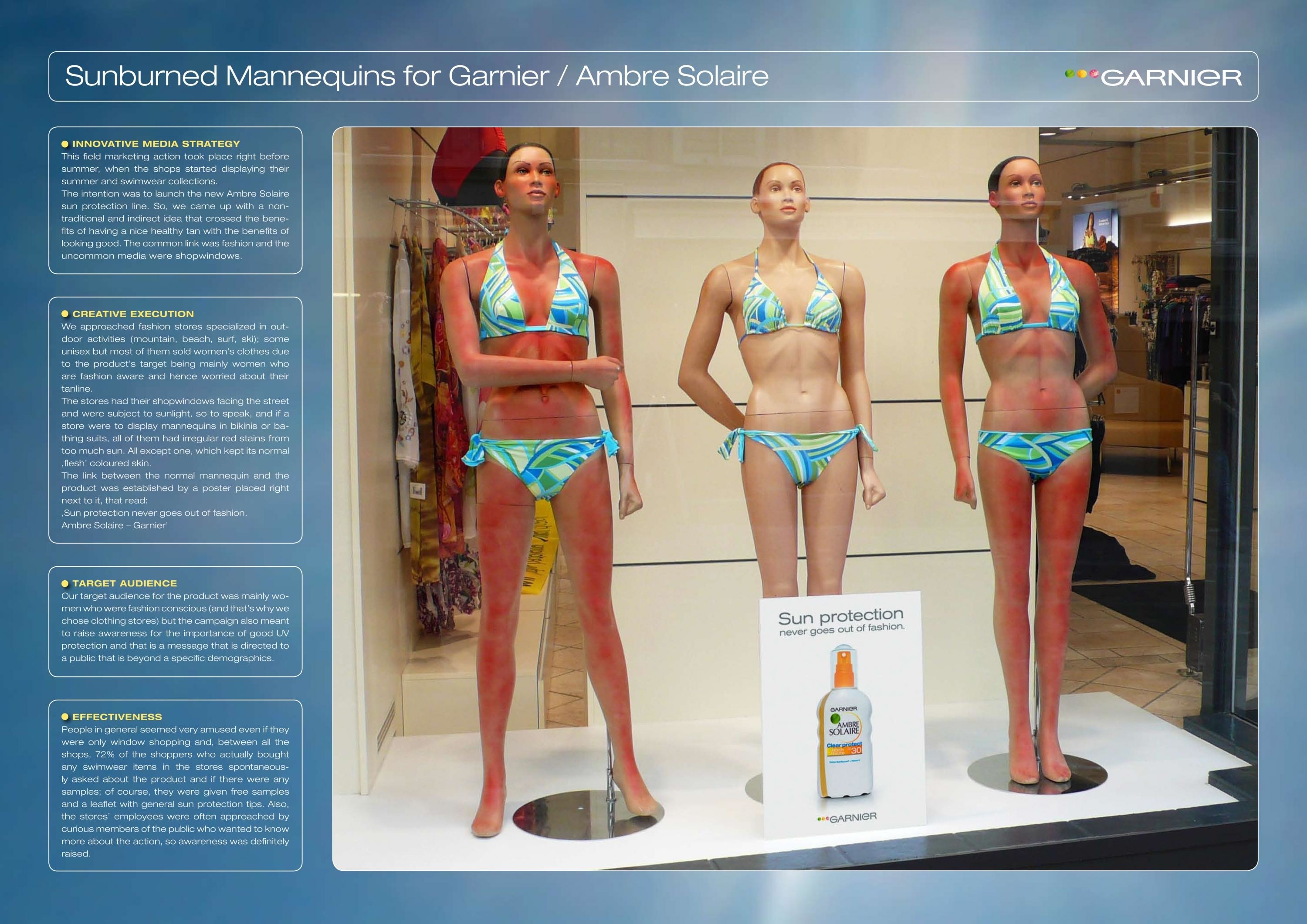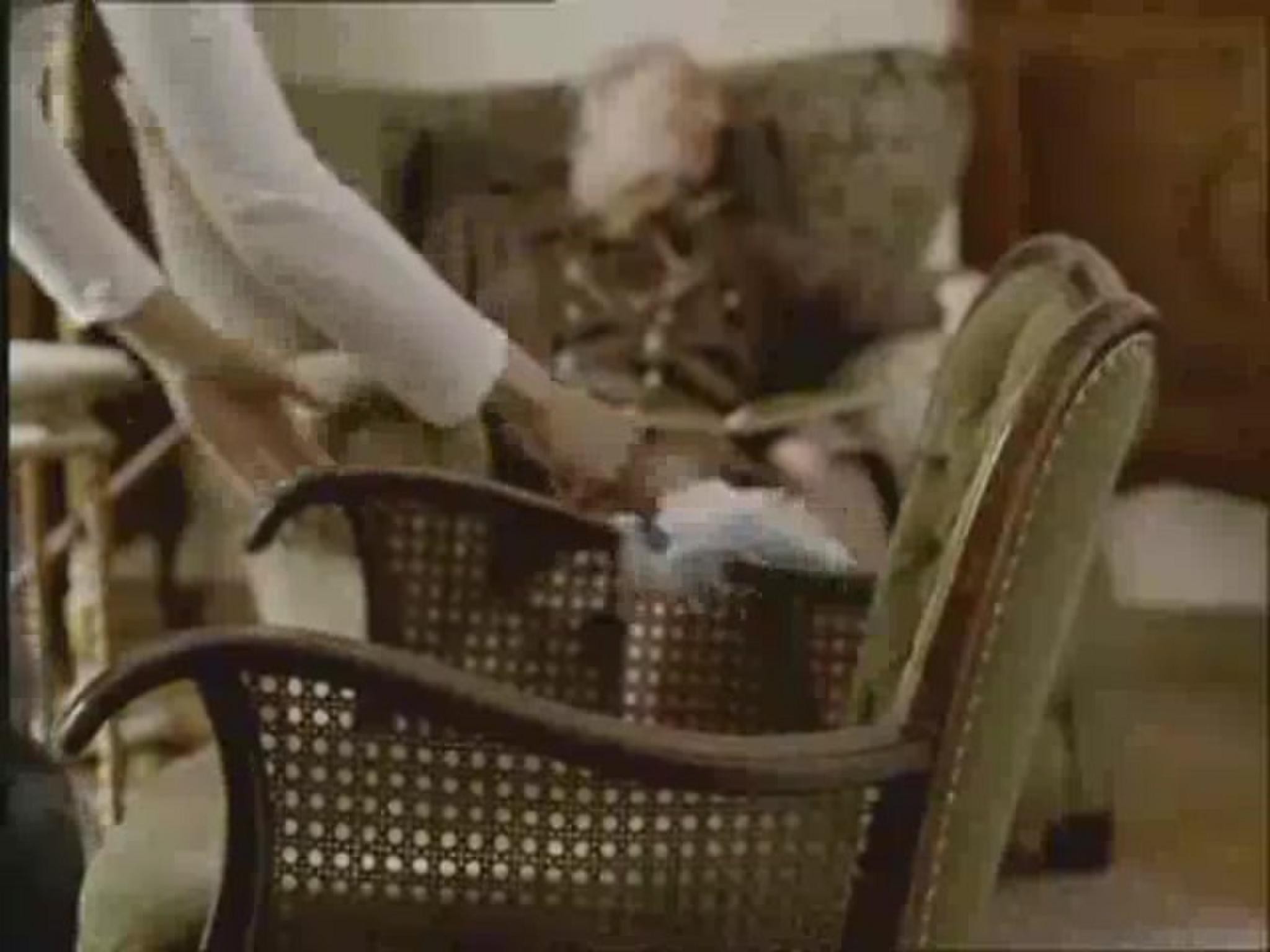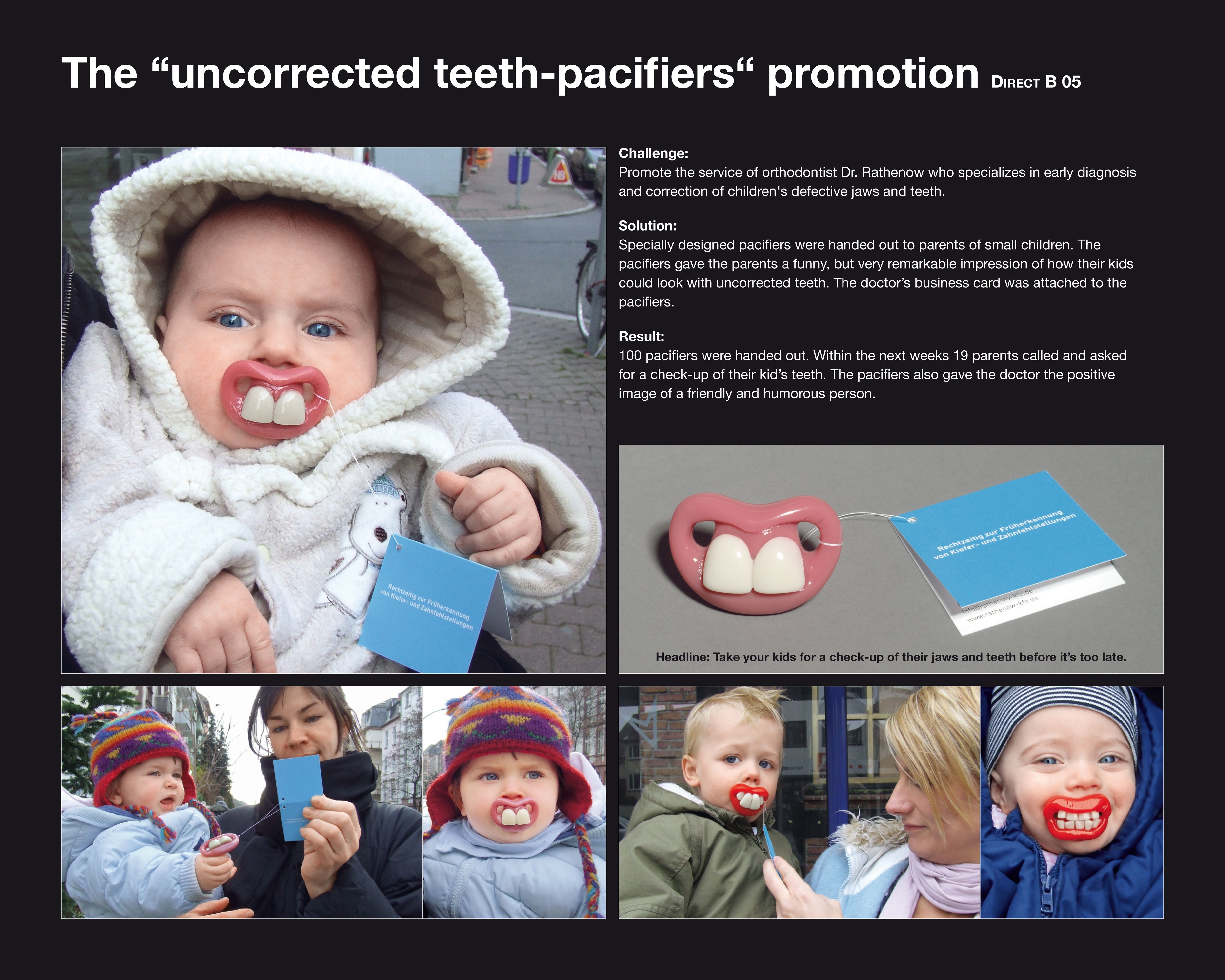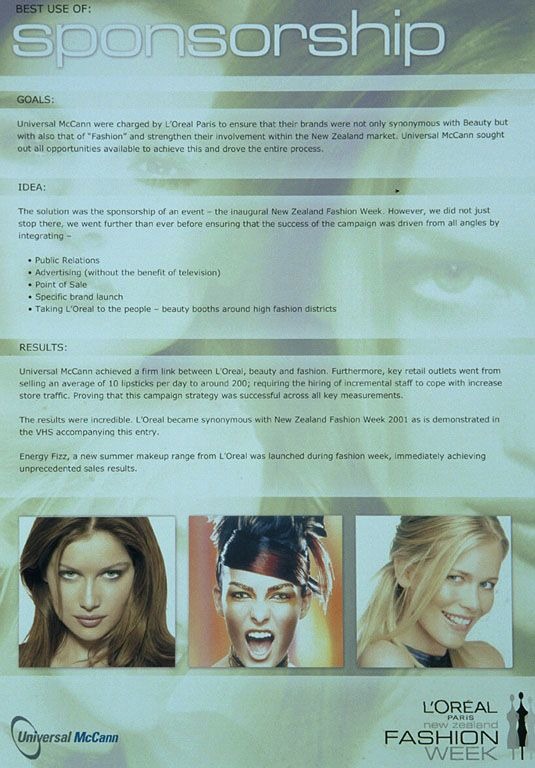Cannes Lions
BEAUTY PRODUCTS
UNIVERSAL McCANN, Auckland / L'OREAL / 2002
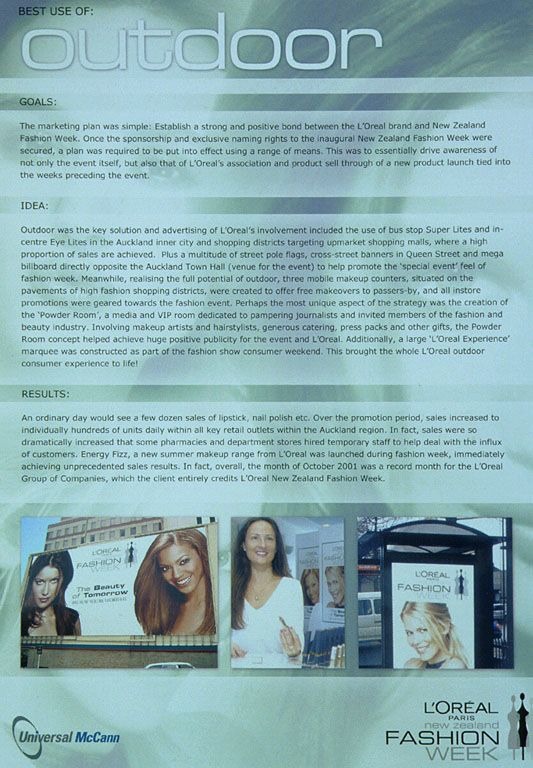
Overview
Entries
Credits
Overview
Description
Marie Molloy McCann-Erikson Account Director The client’s brief was simple – make a positive association between L’Oreal, beauty and fashion. Any activity must portray the L’Oreal Paris values of leadership, quality and innovation. Universal McCann must raise the company’s profile amongst beauty industry professionals and consumers. To boost sales of new and existing L’Oreal products.To this end, it was discovered by Universal McCann, during a proprietary research program, that our core consumer target of women 18-54 generally did not believe that a fashionable look was completed by hair and makeup! Also, our target were sceptical of large scale advertising campaigns trying to portray a fashionable image, believing that dominant advertisers (such as L’Oreal) were just trying to “buy” an image relating to fashion that was not sustainable in reality. To this end, Universal McCann had to find a solution that would conclusively ensure that the women of New Zealand positioned L’Oreal as a range of beauty products synonymous with New Zealand Fashion. Universal McCann utilised many consumer insights to develop key understandings as to how to link L’Oreal to fashion, realising that the link with beauty had already been firmly established. We found we needed to go beyond a traditional media advertising solution in order to engage a complete understanding of our objective in the eyes of the consumer. The solution centred on an out of home experience!We found the sponsorship and exclusive naming rights to the inaugural New Zealand Fashion Week was available. Once secured, a plan was put into effect using PR, traditional and non-traditional advertising means. An outdoor advertising solution emphasising L’Oreal’s involvement included the use of over 100 bus stop Super Lites in the main inner city and shopping districts, 20 Eye Lites, (an emphasis was put on targeting upmarket shopping malls, where a high proportion of sales are achieved). Plus a multitude of street pole flags, cross-street banners along the main street and mega billboard directly opposite the Auckland Town Hall (venue for the event) to help promote the ‘special event’ feel of Fashion Week. In magazines, a four-page “Beauty Odyssey” was inserted in Next, FQ and Style (key fashion titles), while an exclusive advertising supplement was developed and distributed in association with INL Magazines.Meanwhile, three mobile makeup counters, situated on the pavements of high fashion shopping districts, were created to offer free makeovers to passers-by, and all in-store promotions were geared towards the fashion event. Perhaps the most unique aspect of the strategy was the creation of the “Powder Room”, a media and VIP room dedicated to pampering journalists and invited members of the fashion and beauty industry. Involving 35 makeup artists and hairstylists, generous catering, press packs and other gifts, the Powder Room concept helped achieve huge positive publicity for the event and L’Oreal. Additionally, a large “L’Oreal Experience” marquee was constructed as part of the fashion show consumer weekend.The results were incredible and driven entirely by the “out of home” L’Oreal experience. L’Oreal became synonymous with New Zealand Fashion Week 2001 as is demonstrated in the VHS accompanying this entry.Over the promotion period, sales increased to hundreds of units daily within individual retail outlets. The overall 25% lift in sales were so dramatic some pharmacies and department stores hired temporary staff to help deal with the huge influx of customers. The inaugural L’Oreal New Zealand Fashion Week (itself an out of home media idea) was an unparalleled success for all involved. Held in Auckland, the show garnered excellent local and international coverage for New Zealand designers, and helped L’Oreal realise a huge increase in awareness and sales. This was a media led campaign developed entirely by Universal McCann.A large part of this success can be attributed to the strong outdoor presence during the month surrounding the event. L’Oreal invested in key urban Auckland retail areas, utilising Super Lites (leading into and out of key shopping districts) and Eye Lites (in key shopping malls), street pole flags, street banners, ‘mega billboard’ site opposite the event centre (Auckland Town Hall) and street beauty booths in high fashion district centres that provided a L’Oreal beauty experience to the consumer.This activity generated hype surrounding the event and helped promote the dual purpose of the sponsorship (to create a lasting L’Oreal association with high fashion and New Zealand Fashion Week), and boost sales of new and existing L’Oreal products.To this end, this campaign was an outstanding success on all fronts, as the results and VHS accompanying this presentation will attest to. L’Oreal trusted Universal McCann to utilise key consumer insights to develop a highly integrated, non-traditional media solution to their brief upon discovering that our consumer target (women 18-54 years) did not believe a fashionable look was completed by hair and makeup. Our media solution looked outside of traditional media avenues to guarantee L’Oreal’s presence within the New Zealand market was increased above all expectations and brought to life the reality that L’Oreal really was part of fashionable New Zealand.L’Oreal’s exclusive event naming rights, high profile both at and around the show with the “Powder Room” media centre, mobile beauty counters within high fashion districts and giveaways helped make the brand synonymous with Fashion Week and, ultimately, fashion.Universal McCann worked with L’Oreal’s advertising agency to ensure all products launched throughout this period integrated into L’Oreal New Zealand Fashion Week. This was achieved throughout, again establishing a firm link between L’Oreal, beauty and fashion. During the month of October 2001 (month of L’Oreal New Zealand Fashion Week) L’Oreal New Zealand experienced a record financial month with a 25% increase on its previous record, made the previous October. This proves conclusively the success of the event and experiential outdoor campaign strategy.
Execution
The inaugural L’Oreal New Zealand Fashion Week (itself an out of home media idea) was an unparalleled success for all involved. Held in Auckland, the show garnered excellent local and international coverage for New Zealand designers, and helped L’Oreal realise a huge increase in awareness and sales. This was a media led campaign developed entirely by Universal McCann.A large part of this success can be attributed to the strong outdoor presence during the month surrounding the event. L’Oreal invested in key urban Auckland retail areas, utilising Super Lites (leading into and out of key shopping districts) and Eye Lites (in key shopping malls), street pole flags, street banners, ‘mega billboard’ site opposite the event centre (Auckland Town Hall) and street beauty booths in high fashion district centres that provided a L’Oreal beauty experience to the consumer.This activity generated hype surrounding the event and helped promote the dual purpose of the sponsorship (to create a lasting L’Oreal association with high fashion and New Zealand Fashion Week), and boost sales of new and existing L’Oreal products.To this end, this campaign was an outstanding success on all fronts, as the results and VHS accompanying this presentation will attest to.
Similar Campaigns
12 items
